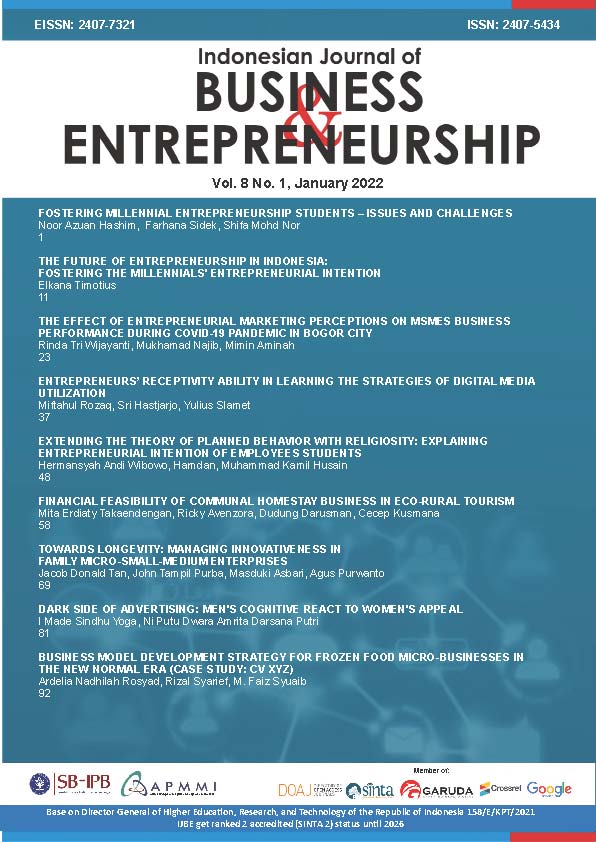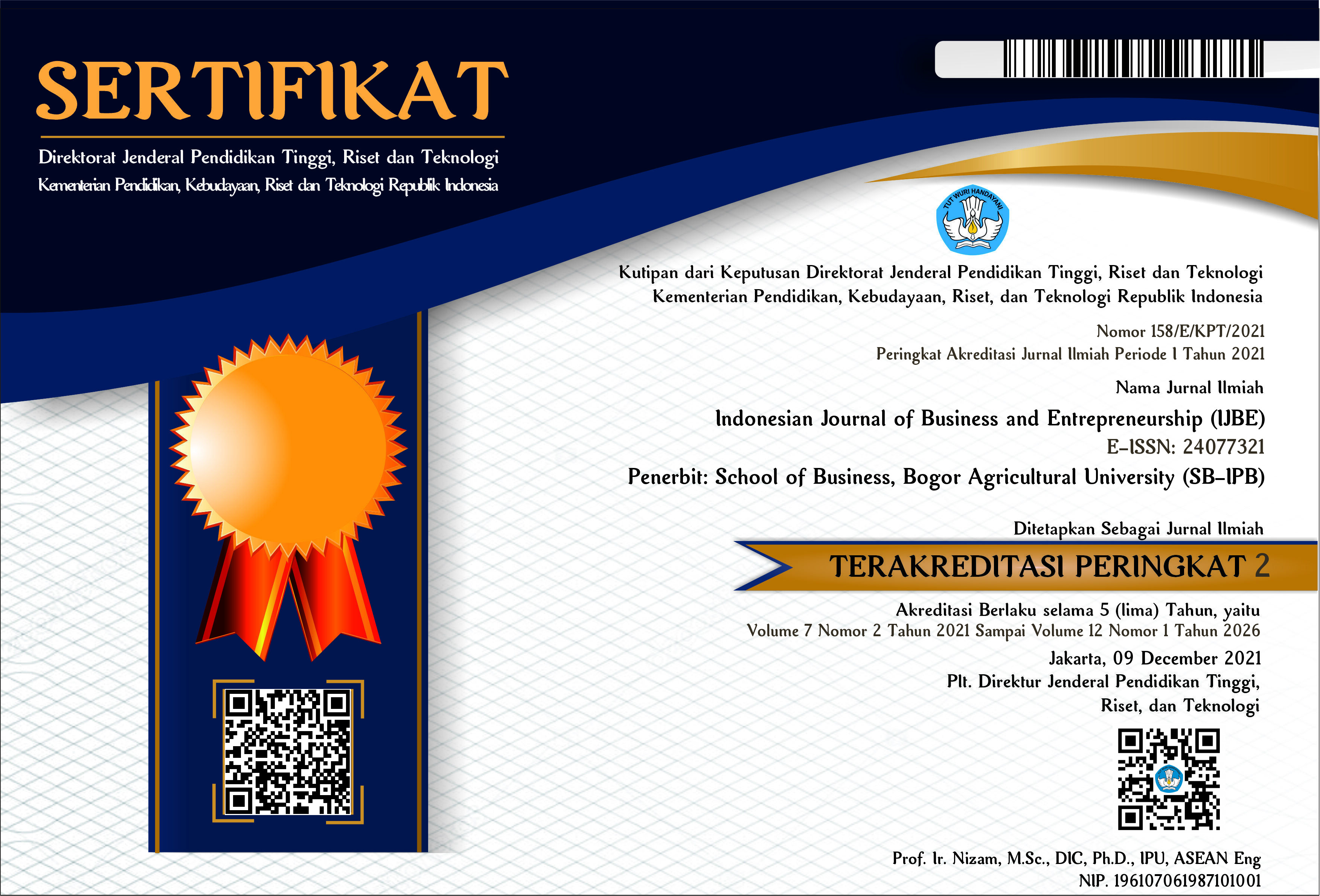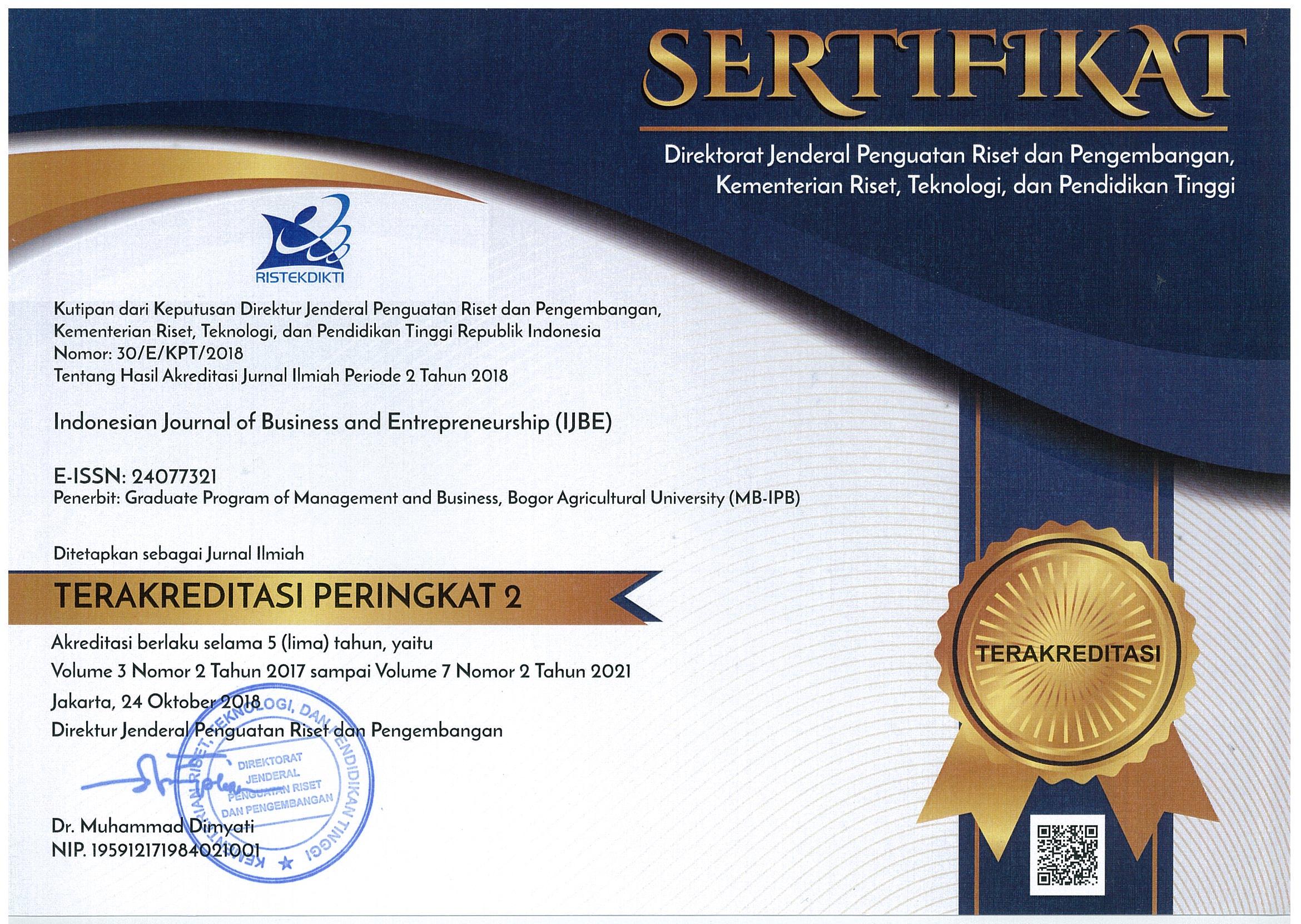Extending The Theory of Planned Behavior With Religiosity: Explaining Entrepreneurial Intention of Employees Students
Abstract
Employees students face major threats related to the development and implementation of the industrial revolution 4.0. However, how employees students handle this situation scientifically is rarely found in the behavioural science literature. This study tries to fill this gap and at the same time extends the Theory of Planned Behavior by adding a variable of religiosity. A total of 421 Muslim students in Banten Province who are still working, were sampled using the purposive sampling method. Structural Equation Modeling is used to test hypotheses simultaneously. The results showed that all independent variables, namely religiosity, subjective norms, and perceived behavioural control had a positive effect on the entrepreneurial intentions of employees students. That is, although the influence of religiosity is second only to perceived behavioural control, empirically, extending the theory of planned behaviour with religiosity is still acceptable. For policymakers, the results of this study can be used to make policies that can increase perceptions about the ease of doing business in Indonesia, especially for employees students.
Keywords: employees students, the theory of planned behaviour, religiosity, industry 4.0, entrepreneurial policy








